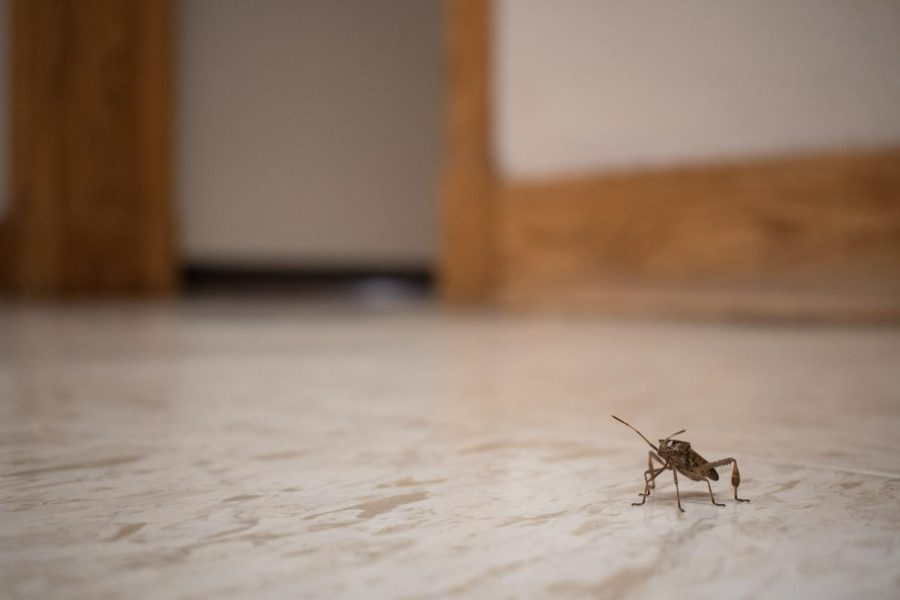Fly infestation plagues anthropology department for over 20 years
Palouse Empire Pest Control Inc. sprayed chemical dust spray last month
A western conifer seed bug crawls across the hallway on the second floor of College Hall, Oct. 18.
October 20, 2022
Each year, the anthropology department faces fly infestations, but this fall was the first time the department contacted exterminators to remedy the issue.
“It happens every year, and there’s flies especially on the top floor and usually this time of year it’s most noticeable because that’s when they’re mostly dying,” said Department Chair Andrew Duff.
Duff, who has been at WSU Pullman for a little over 20 years, said that the presence of bugs in the building is a persistent yearly condition.
“Depending on the year, sometimes it’s a little better or worse and depending on temperatures,” he said. “Occasionally, there’s other bugs, like stink bugs, they’re all around campus, they get in through doors and windows.”
This year, the issue was shortly resolved Sept. 9 after Kam Spelman, program coordinator for the department, filed a work order. Environmental Health and Safety went to the building for an inspection of the offices, and afterward, their representative contacted Palouse Empire Pest Control Inc. to do a chemical dust spray in the offices.
They had the department empty the offices and sprayed the space above the ceiling tiles, Spelman said.
“We asked them [the faculty] to stay out the whole weekend. They only had to be out Friday, but we just said ‘stay out of your office Friday, September 9 through the weekend’ just to make sure that dust settled,” Spelman said.
She said she believes the infestation has been resolved since the exterminators went back to the building afterward to confirm it worked. Dead bugs still litter some areas of the building, like the stairwell in College Hall.
“After that was all settled, Facilities said they’d come back and sweep the floor again or check to see if it needed to be cleaned out again,” Spelman said.
Duff said the flies were especially problematic on the third floor of College Hall due to a gap between the building ceiling and the third-floor ceiling, where they breed.
“I think we’ve had a couple new faculty, new post-doc and some offices on the third floor, and [the] office wasn’t used previously, so I think when they came in they just wanted to make sure their office was clean when they stored it up in the fall,” Spelman said.
She said that to her knowledge, this year was the first time exterminators were contacted to remedy the infestation.
Duff said that the past year has been warmer and that there were not as many people in the building the last few years, which might have contributed to a lengthier infestation this year.
“My sense is that the north side of the building is worse because, in the summer, the south-facing rooms get really hot, and so I think they seem to have less of a problem,” he said. “They [the flies] kind of accumulate in the whole building a little bit, and it’s probably exacerbated by the fact that offices, personal offices, don’t have janitorial service. The department offices and classrooms and hallways get cleaned on a regular basis, but personal offices don’t.”
















